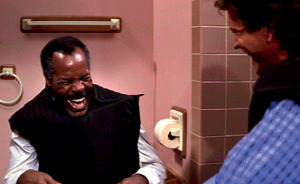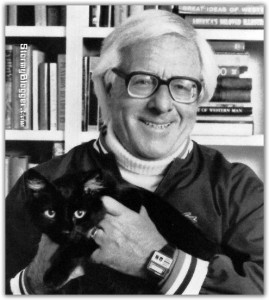 Life is busy at the moment, so please forgive the short post. One of the earliest pieces of writing advice I ever remember reading arrived courtesy of Stephen King. It was three simple (if slightly crude) words: “ass in chair.” Okay, fine. Thanks for that, Stephen. It can’t be argued with, though. But the next question occurs once you have molded said body part firmly onto the furniture in question: how do you keep it there? How do you stay motivated and focused enough to type out the allotted number of words at whatever rate you’ve set yourself? Well, this week I thought I’d be helpful and share five simple techniques to keep you in your seat, facing your screen, typing mindlessly into a document. An activity we mystifyingly insist on calling “writing”. Continue reading “Use Your Imagination”
Life is busy at the moment, so please forgive the short post. One of the earliest pieces of writing advice I ever remember reading arrived courtesy of Stephen King. It was three simple (if slightly crude) words: “ass in chair.” Okay, fine. Thanks for that, Stephen. It can’t be argued with, though. But the next question occurs once you have molded said body part firmly onto the furniture in question: how do you keep it there? How do you stay motivated and focused enough to type out the allotted number of words at whatever rate you’ve set yourself? Well, this week I thought I’d be helpful and share five simple techniques to keep you in your seat, facing your screen, typing mindlessly into a document. An activity we mystifyingly insist on calling “writing”. Continue reading “Use Your Imagination”
Tag: stephen king
Build Your Wings
 When I was maybe 12 or 13 years old, one of the first stories I ever wrote was about an old man wandering the streets in a dystopian future. He was so old and forgotten that he couldn’t even remember his name, going by the initials RDB. Those initials, of course, stood for Raymond Douglas Bradbury, and the man at the time was my literary hero. My very obvious stylistic mimicry of him back then, in that and many other proto-stories, was excruciating yet necessary; all part of a writer’s journey. But it’s no exaggeration to say I almost certainly wouldn’t have been a writer had it not been for Ray Bradbury and his short stories in particular. Up until the time I opened a well-pawed library copy of The Illustrated Man, I knew I loved stories (what kid doesn’t?), but I’d never realised until that moment how those stories could be presented, enclosed in beauty, garnished with lyricism and beauty. Not just the tale but the telling. That was Bradbury’s gift to me and countless other readers who, thanks to his example, began to dream of also being writers. Continue reading “Build Your Wings”
When I was maybe 12 or 13 years old, one of the first stories I ever wrote was about an old man wandering the streets in a dystopian future. He was so old and forgotten that he couldn’t even remember his name, going by the initials RDB. Those initials, of course, stood for Raymond Douglas Bradbury, and the man at the time was my literary hero. My very obvious stylistic mimicry of him back then, in that and many other proto-stories, was excruciating yet necessary; all part of a writer’s journey. But it’s no exaggeration to say I almost certainly wouldn’t have been a writer had it not been for Ray Bradbury and his short stories in particular. Up until the time I opened a well-pawed library copy of The Illustrated Man, I knew I loved stories (what kid doesn’t?), but I’d never realised until that moment how those stories could be presented, enclosed in beauty, garnished with lyricism and beauty. Not just the tale but the telling. That was Bradbury’s gift to me and countless other readers who, thanks to his example, began to dream of also being writers. Continue reading “Build Your Wings”
Ed’s Casual Friday: Safire Rules, and so are you.

Today, in an effort to pad the length of my Friday column, I will be reproducing NY Times political / language columnist William Safire‘s Rules for Writers. Whoops, I mean I’m doing it to make a point…yeah.
- Remember to never split an infinitive.
- The passive voice should never be used.
- Do not put statements in the negative form.
- Verbs have to agree with their subjects.
- Proofread carefully to see if you words out.
- If you reread your work, you can find on rereading a great deal of repetition can be by rereading and editing.
- A writer must not shift your point of view.
- And don’t start a sentence with a conjunction. (Remember,
too, a preposition is a terrible word to end a sentence with.) Continue reading “Ed’s Casual Friday: Safire Rules, and so are you.”
The Good, The Bad, The Indifferent

I’ve discovered a potentially fatal flaw in my personality. I mean, outside the more obvious ones (no need to point them out in the comments section, folks). Put simply, I like genre and I like literary. In musical terms, I like teen pop and modern classical, Spears and Stockhausen, Avril and Arvo. But this post is neither a demonstration of my “amazing” pop cultural eclecticism nor a reflection of my mental health anxieties; we like what we like, after all. No, this post is an attempt to reconcile two apparently opposing impulses in the world of writing; the aforementioned (alleged) impasse between genre and literary fiction.
For anyone who has attended a university-level creative writing course, even a single workshop, this dichotomy might already have raised its slightly distorted head. I majored in English literature and I’ve also attended a one-year certificate course in creative writing at a local university, and I don’t regret either of them. My purpose here is certainly not to trash the rarefied air of academia. Far from it. Because I genuinely learned a great deal about writing—about what works and what doesn’t work, about the inner alchemy and the outer pragmatism of this eccentric world—from those two experiences. Not to mention the confidence boost of sharing your work among motivated and engaged peers as deeply in love with the written word as you, alongside the equally essential practice of reading in front of an audience so you don’t forget that word’s spoken nature either. Continue reading “The Good, The Bad, The Indifferent”
